We need to teach the complete history of racism. Not just white involvement. For instance the:
Wednesday, July 28, 2021
We need to teach the complete history of racism
Tuesday, July 27, 2021
Today the white man is to shut up
Today the white man is to shut up and repent for sins he did not commit, Pay for damages for crimes he did perpetrate, to people he did not damage
Monday, July 26, 2021
Bidens Word Salad at Townhall Meeting July 3,21
Biden is talking with CNN's Don Lemon about the Covid Crisis
Sunday, July 25, 2021
Existence of God
THE PROBLEM IS ATHEISTS HAVE IS THERE IS NO SCIENTIFIC ANSWER TO GOD'S EXISTENCE. SO THEY DISMISS GOD'S BEING.REFRAME THE QUESTION. ASK AN ATHEIST, CAN YOU PROVE THERE IS NO GOD... SCIENTIFICALLY? HE CANNOT!
THERE IS NO SCIENTIFIC ANSWER BECAUSE GOD AND RELIGIOUS BELIEF ARE OUTSIDE THE PARAMETERS OF SCIENCE. SCIENCE ONLY DEALS WITH NATURAL PHENOMENA. SCIENCE IS RELEGATED TO EMPIRICAL STUDIES, WHAT IT SENSE AND MEASURE.
GOD IS ABOVE NATURE AND THEREFORE SUPERNATURAL. WHICH SCIENCE SOMETIMES DENIES BUT CANNOT PROVE DOESN'T EXIST.
PROOF OF GOD IS A METAPHYSICAL QUESTION NOT A SCIENTIFIC QUESTION. YOU ARE LOOKING IN THE WRONG PLACE.
HOWEVER, GOD MAY EXIST AND SCIENCE CANNOT PROVE OTHERWISE. THE SHALLOW-MINDED SAY THERE IS NO EVIDENCE. THAT IS DEBATABLE AND IRRELEVANT.
*LOGIC DICTATES THAT THE LACK OF EVIDENCE DOES NOT PROVE THE LACK OF EXISTENCE.* HUMANS DISCOVER THINGS EVERY DAY THAT THEY HAD NO EVIDENCE OF BEFORE. SO THEREFORE GOD VERY WELL MAY EXIST!
CHRISTIANS DO NOT TRY TO PROVE GOD'S EXISTENCE SCIENTIFICALLY BUT UNDERSTAND THRU PERSONAL REVELATION AND FAITH. IF GOD HAS REVEALED HIMSELF TO YOU - MADE YOU PERSONALLY AWARE OF HIS EXISTENCE - THEN NO SCIENTIFIC PROOF IS NEEDED.
WHICH IS, OF COURSE, NOT SCIENTIFIC. BUT THAT DOESN'T PROVE GOD DOESN'T EXIST.
SO ATHEISTS CANNOT PROVE GOD DOES NOT EXIST THRU THE SCIENTIFIC METHOD; AND CHRISTIANS CANNOT PROVE GOD EXISTS
THRU PERSONAL REVELATION.
AN ATHEIST WHO DEMANDS "SCIENTIFIC" PROOF DOES NOT UNDERSTAND SCIENTIFIC METHODOLOGY. THE CHRISTIAN THAT TRIES TO PROVE GOD SCIENTIFICALLY, DOESN'T UNDERSTAND HIS FAITH.
SO WHAT IS THE "TRUE" ANSWER FOR THE NON-BELIEVER? AGNOSTICISM, THE HONEST BELIEF THAT YOU SIMPLY DON'T KNOW AND THERE IS NO WAY OF PROVING GOD'S EXISTENCE, ONE WAY OR THE OTHER! SO YOUR HEART CAN NEVER BE SETTLED ON THIS ISSUE
WHICH, I SUSPECT YOU REALLY WANT..
I NOTICED YOU WERE SHOUTING YOUR QUESTION. DEMANDING AN ANSWER. YOU WILL (I THINK) REJECT MY ANSWER.
I DO HAVE A BIBLE QUOTE FOR CHRISTIANS WHO MEET YOU AND YOUR SORT OF SHOUTER (HATER)?
*"AND WHOEVER SHALL NOT RECEIVE YOU OR HEAR YOUR WORDS, SHAKE OFF THE DUST OF YOUR FEET WHEN YOU DEPART..."*
GOD IS ABOVE NATURE AND THEREFORE SUPERNATURAL. WHICH SCIENCE SOMETIMES DENIES BUT CANNOT PROVE DOESN'T EXIST.
PROOF OF GOD IS A METAPHYSICAL QUESTION NOT A SCIENTIFIC QUESTION. YOU ARE LOOKING IN THE WRONG PLACE.
HOWEVER, GOD MAY EXIST AND SCIENCE CANNOT PROVE OTHERWISE. THE SHALLOW-MINDED SAY THERE IS NO EVIDENCE. THAT IS DEBATABLE AND IRRELEVANT.
*LOGIC DICTATES THAT THE LACK OF EVIDENCE DOES NOT PROVE THE LACK OF EXISTENCE.* HUMANS DISCOVER THINGS EVERY DAY THAT THEY HAD NO EVIDENCE OF BEFORE. SO THEREFORE GOD VERY WELL MAY EXIST!
CHRISTIANS DO NOT TRY TO PROVE GOD'S EXISTENCE SCIENTIFICALLY BUT UNDERSTAND THRU PERSONAL REVELATION AND FAITH. IF GOD HAS REVEALED HIMSELF TO YOU - MADE YOU PERSONALLY AWARE OF HIS EXISTENCE - THEN NO SCIENTIFIC PROOF IS NEEDED.
WHICH IS, OF COURSE, NOT SCIENTIFIC. BUT THAT DOESN'T PROVE GOD DOESN'T EXIST.
SO ATHEISTS CANNOT PROVE GOD DOES NOT EXIST THRU THE SCIENTIFIC METHOD; AND CHRISTIANS CANNOT PROVE GOD EXISTS
THRU PERSONAL REVELATION.
AN ATHEIST WHO DEMANDS "SCIENTIFIC" PROOF DOES NOT UNDERSTAND SCIENTIFIC METHODOLOGY. THE CHRISTIAN THAT TRIES TO PROVE GOD SCIENTIFICALLY, DOESN'T UNDERSTAND HIS FAITH.
SO WHAT IS THE "TRUE" ANSWER FOR THE NON-BELIEVER? AGNOSTICISM, THE HONEST BELIEF THAT YOU SIMPLY DON'T KNOW AND THERE IS NO WAY OF PROVING GOD'S EXISTENCE, ONE WAY OR THE OTHER! SO YOUR HEART CAN NEVER BE SETTLED ON THIS ISSUE
WHICH, I SUSPECT YOU REALLY WANT..
I NOTICED YOU WERE SHOUTING YOUR QUESTION. DEMANDING AN ANSWER. YOU WILL (I THINK) REJECT MY ANSWER.
I DO HAVE A BIBLE QUOTE FOR CHRISTIANS WHO MEET YOU AND YOUR SORT OF SHOUTER (HATER)?
*"AND WHOEVER SHALL NOT RECEIVE YOU OR HEAR YOUR WORDS, SHAKE OFF THE DUST OF YOUR FEET WHEN YOU DEPART..."*
Friday, July 23, 2021
A Conversation with Drew Fraser about the White Race.
A Conversation with Drew Fraser
Grégoire Canlorbe, American Renaissance, July 16, 2021
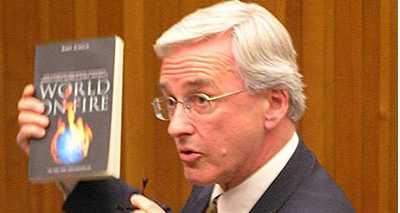
A Canadian-born academic, Andrew William Fraser was an associate professor in the Department of Public Law at Macquarie University in Sydney, Australia. He was pushed out of academia because of his views on race and the White Australia Policy. He was a speaker at the 2006 American Renaissance conference and is the author of The WASP Question.
Grégoire Canlorbe: A striking contemporary trait in the WASP people is the propensity to assess foreigners (including non-whites) as self-determined, free “individuals” who can transition from one ethnic group to another one, and to welcome them into WASP territory and give them citizenship. Is this an acquired, “cultural” trait or is it biologically anchored?
Drew Fraser: There is no radical break between biology and culture. Racial differences generally are, in large part, biologically or genetically grounded. But culture, too, is more than a social construct; it, too, has a substantial biological component. Deeply entrenched cultural differences between racial groups may be reflected in their respective genomes. The culture of any racial group is never static; it changes and develops, sometimes in tandem with genetic changes.
One example of the interaction between biology and culture was the emergence of lactose tolerance among peoples who gave up a hunter-gatherer way of life to engage in animal husbandry. The concept of bioculture presupposes the co-evolution of biology and culture.
But any such co-evolution is a long process occurring within stable gene pools over millennia. Blacks have been in America for a little over four centuries without assimilating into the dominant white culture, much less undergoing genetic changes as a consequence. Paradoxically, American black culture, having been released from the disciplinary matrix formerly imposed by slavery and Jim Crow, is becoming steadily more remote from WASP bioculture. Contemporary black Americans dependent on public welfare are reverting to the fast-life strategies (e.g. low investing parenting of many children) associated with their sub-Saharan African ancestors.
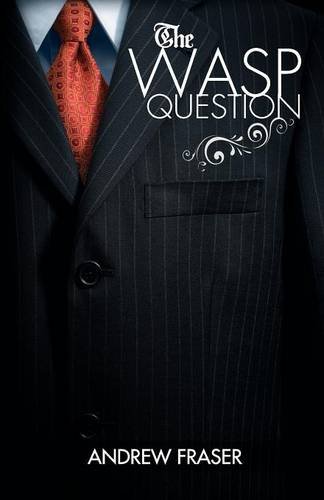 WASP biocultures are generally characterized by predispositions towards individualism, exogamy, and small nuclear families. As a consequence, WASPs display a relative lack of ethnocentrism. Kevin MacDonald explains these biocultural traits as an evolutionary adaptation to the rigors of life in cold, ecologically adverse climates. Natural selection worked there to favor the reproductive success of individuals capable of sustaining “non-kinship-based forms of reciprocity.”
WASP biocultures are generally characterized by predispositions towards individualism, exogamy, and small nuclear families. As a consequence, WASPs display a relative lack of ethnocentrism. Kevin MacDonald explains these biocultural traits as an evolutionary adaptation to the rigors of life in cold, ecologically adverse climates. Natural selection worked there to favor the reproductive success of individuals capable of sustaining “non-kinship-based forms of reciprocity.”The Anglo-Saxon Männerbünde (all-male organizations) that invaded and settled in England were bound together originally more by covenant than kinship. The prominent place accorded to oath-taking and covenants in early England was associated with the growth of the individualism later manifested in the development of the English common law of contract, private property, and eventually impersonal corporate forms of business. All of these legal norms required sustained co-operation between and among strangers.
The distinctive culture that emerged from the interaction between the genotype of the English people and their environment can be understood as what Richard Dawkins calls an extended phenotype. Like the spider’s web or the beaver’s dam, the extended phenotype of WASP bioculture creates a feedback loop between genes and environment. If the WASP bioculture creates a “society of strangers,” its most characteristic extended phenotype is perhaps the modern nation-state. WASPs can be said to have invented the nation-state as the primary institutional expression of their collective identity.
The problem is that Anglo-Saxon states, like Frankenstein’s monster, have escaped control of, by, and for the people who created them. WASP bioculture emerged within a high-trust society of strangers within which the state was expected to act as trustee for the interests of society as a whole. Today, those Anglo-Saxon nation-states have been absorbed into a more or less autonomous and self-perpetuating, globalist system of governance.
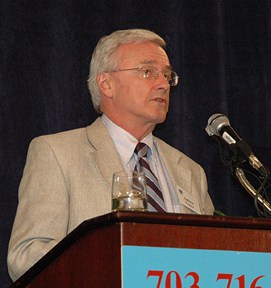
Andrew Fraser at an American Renaissance conference.
WASPs are now vulnerable to the machinations of transnational corporate welfare states determined to open up every formerly Anglo-Saxon country to an unending flood of mass immigration. Predominantly non-white immigrants come from low-trust societies predisposed to elevate kinship and tribal loyalties over impersonal norms of fairness and justice. Individual WASPs are ill-prepared to compete with racial strangers who cooperate with each other to advance their collective interests.
Clearly, the survival of WASP biocultures depends on successful adaptation to these altered circumstances.
Grégoire Canlorbe: What do you think of Samuel Huntington’s classification of contemporary civilizations — and on his claim that the twenty-first century’s struggles will be neither economically nor racially motivated, but instead “civilizational” clashes? Did Huntington understand the WASP civilizational model?
Drew Fraser: Huntington thought that clashes between civilizations were the greatest threat to world peace but, at the same time, looked to an international order based on civilizations as the best safeguard against war. He probably overestimated the unity, cohesion, and cultural continuity of the major civilizations. Nowhere is that more obvious than in the case of Western civilization.
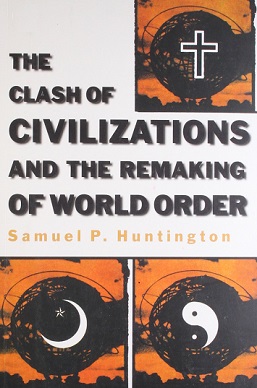 The United States, according to Huntington, is the core state of Western civilization. He believed that the United States has a core “Anglo-Protestant culture.” He recognized that mass immigration was a serious threat to the survival of that core culture, but held to the vain hope that new immigrants could and would assimilate.
The United States, according to Huntington, is the core state of Western civilization. He believed that the United States has a core “Anglo-Protestant culture.” He recognized that mass immigration was a serious threat to the survival of that core culture, but held to the vain hope that new immigrants could and would assimilate.His analysis rested also on the assumption that the core Anglo-Protestant culture established in the British North American colonies had survived intact to the present day. In fact, the character of the American people was altogether different in the colonial and early republican periods. Sociologist David Riesman described the dominant character-type of those days as “inner-directed.” Knowing the difference between right and wrong, early Americans were “rugged individualists,” possessing a sort of inbuilt psychic gyroscope that enabled them to stay on course, whatever the obstacles.
Nowadays, most Americans (especially those in the managerial-professional elites) display an “other-directed” character of the sort essential to success in corporate, government, and academic bureaucracies. According to Robert Jackall, the moral ethos prevalent in managerial circles is “most notable for its lack of fixedness.” The other-directed character requires, not an internal gyroscope, but a sort of radar able to pick up minute shifts in the fluctuating relationships with others in a mass-mediated social order.
The rootless cosmopolitanism of an other-directed corporate culture is driven by an “essential, pervasive, and thoroughgoing pragmatism.” In modern multiracial mass societies, the early republican constitution of liberty was replaced by a corporatist constitution of control promoting the growth and vitality of an increasingly plutocratic globalist system.
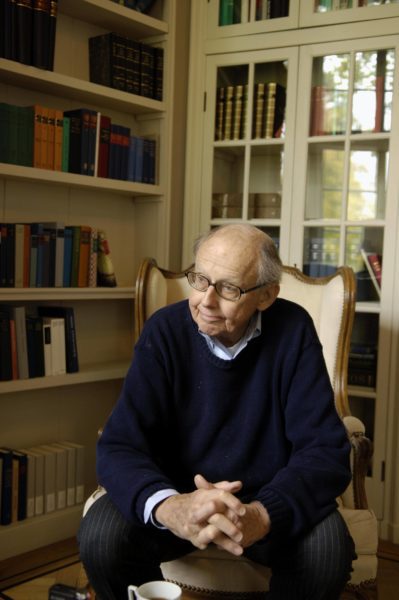
Samuel P. Huntington (Credit Image: © Imago via ZUMA Press)
Amidst the ruins of their ancestral bioculture, WASPs throughout the Anglosphere have been abandoned by Woke corporate welfare states that no longer even pretend to represent them. WASPs are now de facto, if not yet de jure, a stateless people. Only by falling back on their ancestral racial and ethnic identity will ordinary WASPs find the spiritual strength to turn the tables on cosmopolitan elites. It is those faithless elites, not other civilizations, that pose the greatest existential threat to the Anglo-Saxon peoples.
Grégoire Canlorbe: In your most recent article, you enjoin “virtuous WASPs” to “challenge the corrupt globalist plutocracy misgoverning the Anglosphere.” Who are exactly those plutocrats — and how should they be fought?
Drew Fraser: The modern Anglo-American business corporation is a product of the managerial revolution. For more than a century now, ownership of the business corporation has been separated from control. Shareholders are no longer responsible for the corporate governance. Complex systems of corporate finance have created interlocking structures of control, concentrating power in the hands of an irresponsible plutocratic oligarchy.
That plutocracy is made up of people from a wide range of ethnicities. Throughout the Anglosphere, Jews play prominent roles in finance, media, academia, the law, and politics. Other ethnic groups have found niches of their own, such as the Indians in Silicon Valley. While no one ethnic group dominates the globalist plutocracy numerically — even WASPs can still be found within its ranks — there is little doubt that what E. Michael Jones calls “the Jewish revolutionary spirit” provides what amounts to its guiding ideology.
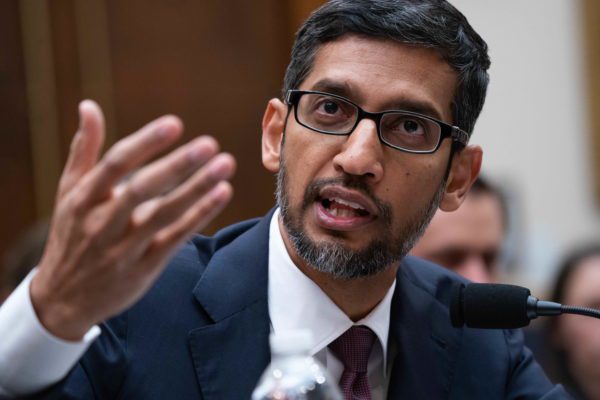
Google CEO Sundar Pichai testified before the House Judiciary Committee on Capitol Hill. (Credit Image: © Jeff Malet / Newscom via ZUMA Press)
WASPs are largely responsible for the invention of both the nation-state and the modern business corporation. I believe WASPs have an ethnoreligious duty, therefore, to clean up the mess that they and others have made of their biocultures and its extended phenotypes (or Lebenswelt as a German might put it more poetically). Having become a stateless people, the WASP diaspora ought to re-model itself to some degree on the experience of the other, once-stateless diaspora; namely, the Jews.
In other words, like the Jews, WASPs should be more than the ethnomasochistic people-in-itself that they are at present; they can and should become an ethnocentric people-for-itself. The one essential lesson they must learn from Jews is that it is morally permissible, indeed obligatory, to ask of every public policy, corporate institution, and religious practice one simple question; namely, “Is it good for the WASPs?”
WASPs need to regenerate the ethnoreligious spirit of the early medieval Angelcynn [an Old English word for the English people or nation] church. In the time of Alfred the Great (849-899), the church provided the embryonic English people with the first intimation that they, too, could become, a “holy nation” destined to do God’s work in healing a wounded world. The most important task of a resurrected Angelcynn church and its ancillary educational institutions will be to prepare WASPs to play a leading role in the reconstitution of a responsible ruling class.
Just how one major aspect of such a program might be accomplished is the subject of my forthcoming book on the republican reformation of corporate governance. It is to be published by Arktos Media. It is: Reinventing Aristocracy in the Age of Woke Capital: How Honourable WASP Elites Could Rescue Our Civilization from Bad Governance by Irresponsible Corporate Plutocrats.
Grégoire Canlorbe: You have written about the “German Church Struggle” in the 1930s — and how the victory of the side most famously represented by Karl Barth encouraged the cosmopolitan character of Christianity in the whole West. What alternative is there to the deracinated universalism of mainstream Christianity?
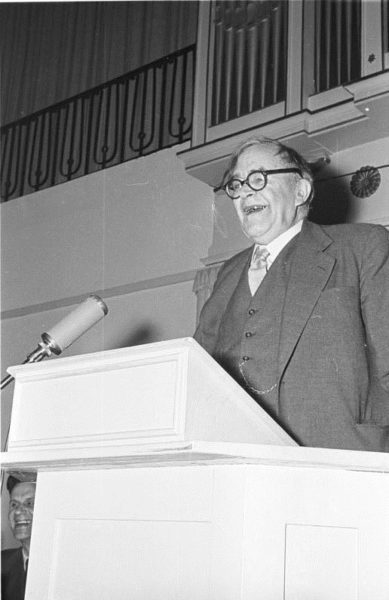
Karl Barth in 1956 (Credit Image: Hans Lachmann via Wikimedia)
Drew Fraser: The story of the conflict within German Protestant churches between supporters and opponents of the National Socialist regime is known as the Kirchenkampf. Mainstream historical writing on the church struggle typically rests on one unshakeable premise; namely, that, even before the war, the National Socialists, generally, and Adolf Hitler, in particular, were culpably criminal and irredeemably evil.
Karl Barth played a leading role in organizing ecclesiastical opposition to Hitler’s regime and its German Christian supporters. At the end of the war, Barth emerged as the clear victor over his völkische [“folkish” or national] rivals in the Protestant churches. By the 1960s, he was a world-renowned religious thinker, even appearing on the cover of Time magazine. He gave an enormous boost to cosmopolitan Christianity by rejecting any Volkskirche [national church] by denying that either nations or nationality were any part of the divinely-ordained order of creation.
Barth refused to acknowledge that the Church can “be regarded as a human production.” He insisted that the Church does not owe its existence to this world; rather its being is “secured, unthreatened, and incontestable only from above, only from God, not from below, not from the side of its human members.”
By contrast, the ideal of the Volkskirche rejected by Barth and his ecclesiastical allies held that “in the national determination of man we have an order of creation no less than in the relationship of man and woman and parents and children.” But mainstream Christians in every erstwhile Anglo-Saxon country now regard their own peoples as merely historical constructs whose purely contingent national identity cannot be identified as a command of God or a presupposition of the divine order of things.
Barth’s complete ideological triumph has effectively licensed the virtual extinction of Christian nationhood throughout the Western world.
Grégoire Canlorbe: What has been the fate of the Anglican Church in Australia compared to Western Christianity’s other denominations?
Drew Fraser: The Anglican Church of Australia, especially in its Sydney Diocese, regards itself as Christian first, evangelical second, and Anglican a distant third.In his 2012 Presidential Address, the then-Archbishop of Sydney, Peter Jensen lent fulsome support to the transformation of Sydney into a multiracial global city. He celebrated the fact that between 2006 and 2011 over 300,000 migrants arrived in Sydney from over 216 countries. He was not at all worried that China and India now dominate the countries of origin.
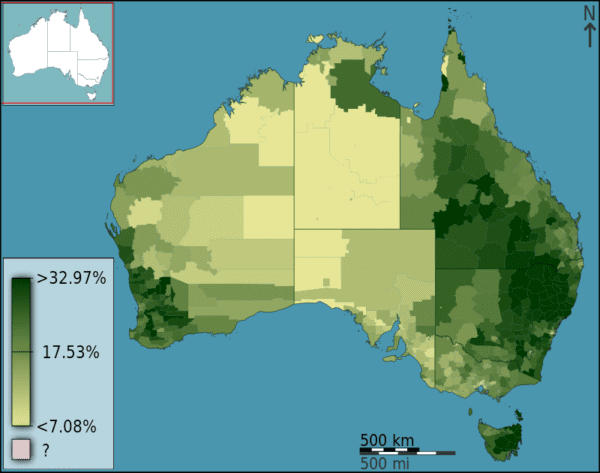
People who identify as Anglican as a percentage of the total population in Australia at the 2011 census, divided geographically by statistical local area. (Credit Image: Toby Hudson based on data from the Australian Bureau of Statistics via Wikimedia)
Just this year, the Sydney Diocese elected as its new Archbishop a Buddhist adult convert to Christianity whose Sri Lankan parents migrated to Australia when he was a young child. Clearly, Sydney Anglicans have no interest in the survival of a national church nurturing and preserving the ethnoreligious identity of the white Anglo-Saxon Protestants whose ancestors founded the Church of England in Australia.
This represents a sharp departure from the hopes invested in the Broad-Church movement in the 19th century Church of England.First John 5:6-8 tells us that the Trinitarian character of a holy people is found in the “three who bear witness on earth: the Spirit, the water, and the blood; and these three agree as one.”At least one Anglican theologian, Frederick Denison Maurice (1805-1872), located the Spirit, the water, and the blood in the tripartite spiritual constitution of every national church.
Maurice defended the Trinitarian unity of family, church, and nation. Unfortunately, the Anglican Church of Australia and elsewhere has rejected such a traditionalist theology. Instead, WASPs in the Australian Church have embraced the secular cult of human equality with all the enthusiasm their middle-class English souls can muster.
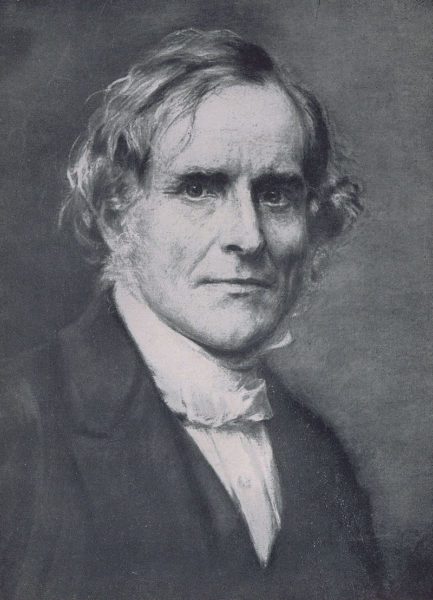
Frederick Denison Maurice
Anglo-Australian Anglicans have missed altogether the theological point and purpose of Australian nationhood. Indeed, the Church has joined forces with the State to siphon off the Spirit and the water from the blood-faith of its Angelcynn forebears. The amorphous mass of individualistic WASP Anglicans must be satisfied with the thin gruel offered to them by a “public theology” engaged in the competitive (indeed pathological) display of out-group altruism that characterizes evangelical mission in a post-Christian world.
Grégoire Canlorbe: You suggest theology as the “queen of the racial sciences”—and race as a trinitarian phenomenon paralleling the trinitarian deity. Thus you envision “race-as-biology,” “race-as-ethnicity,” and “race-as-theology” as the three elements of race—especially in the white man. Please tell us more.
Drew Fraser: There are three dimensions to racial and ethnic identity. The first, race-as-biology, promises to shed light on the relationship between blood and behavior as manifested in measurable group differences such as average intelligence, temperament, and reproductive strategies.
By contrast, race-as-ethnicity deals with the myths and symbols that move men to collective action. As Hannah Arendt observed, to act, “in the most general sense, means to take an initiative, to begin . . . to set something in motion.” The actor is someone who starts something new. Applied to the birth of an ethno-nation, her insights suggest that action promotes the process of ethnogenesis in two stages: (1) the beginning made by a charismatic leader; and (2) the subsequent construction of a novel collective identity by his followers.
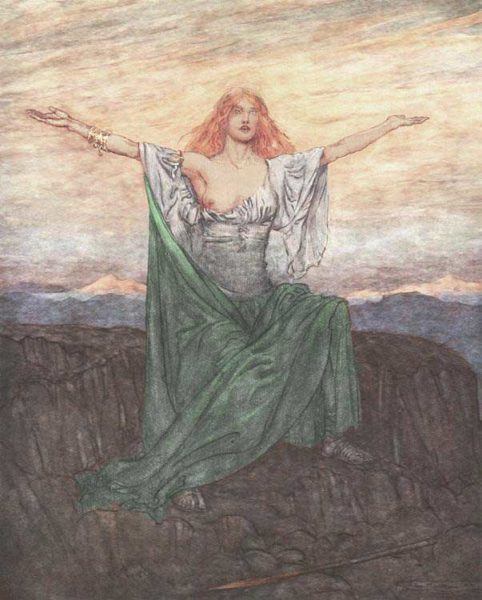
The valkyrie Sigrdrífa says a pagan Norse prayer in Sigrdrífumál. (Illustration by Arthur Rackham via Wikimedia)
No wonder, then, that the imagined community of Christians appeared in late antiquity “in the guise of a miracle.” Not even the most devout Jews longing for the messianic restoration of national Israel expected what actually came to pass. Against all the odds, Christians—this new race of men—were moved by the Spirit to accomplish their divinely-appointed mission.
Race-as-theology helps us to understand how Spirit and blood mingled with the life-giving power of water to sustain the first, embryonic Christian communities. Since then, Christian nationhood has been nourished by the continuing interplay of Spirit, water, and blood. But disorder or dysfunction in one or more of those elements has led many nations to defeat and destruction.
Even the most atheistic practitioners of race-as-biology concede that a shared religious faith is likely to enhance the inclusive fitness of any race or nation. Conversely, the essentially trinitarian character of Christian nationhood is subverted when the unitarian logic of biology suppresses the theological dimension of racial or ethnic identity.
But a one-dimensional obsession with race-as-theology is no less productive of disastrous consequences. The now-dominant unitarian theology of cosmopolitan Christianity asserts that there is only one race, the human race. The denial by “anti-racists” of the fixed, intractable, biological character of the observable differences between various groups provides ideological cover for the deliberate displacement of white Europeans in favor of non-white immigrants.
Differences between Negroes, white Europeans, and Orientals are part of the divinely-ordered nature of things. Race is a theological not just a biological or cultural phenomenon. Those who refuse to recognize the theological significance of race do so at their peril.
Grégoire Canlorbe: Could you remind us of your case for a “patriotic king” in Australia, a wording you borrow from a book by Henry St. John, 1st Viscount Bolingbroke (1678-1751)?
Drew Fraser: Royalty plays a central role in the Bible story. Jesus the Christ traced his descent from King David. As the very model of an English David, Alfred the Great established a Christian kingdom in England. The hereditary monarch of the British dominions once served as trustee-in-chief for his realm. The religious significance of the monarchy was given formal recognition when Henry VIII and his heirs and successors were declared to be Supreme Governors of the Church of England. The Royal Supremacy played a significant role in the rise of the Broad-Church movement in the 19th century Church of England. Nowadays, it has become little more than a hollow simulacrum of the putative royal authority vested in a shapeshifting Crown. As in secular matters, the reigning monarch exercises the Royal Supremacy as a rubber stamp for any government of the United Kingdom commanding a majority in the House of Commons.
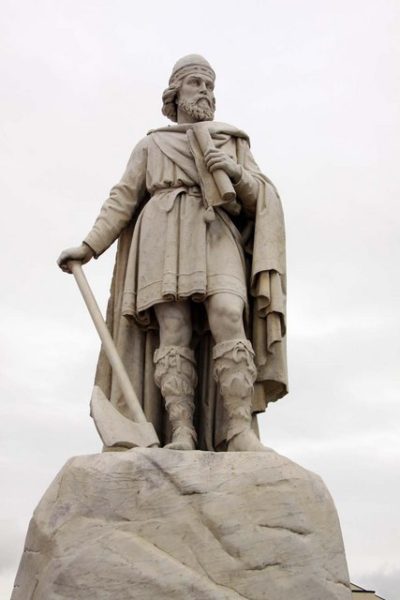
Statue of Alfred the Great at Wantage, Oxfordshire. (Credit Image: Steve Daniels via Wikimedia)
A major objective of a future network of Angelcynn churches throughout the Anglosphere should be to rescue the captive Crown in right of the Royal Supremacy from corrupt politicians with no demonstrable interest in the spiritual welfare of Anglo-Saxons “at home” or in the diaspora. Once Royal Supremacy over the Church of England has been insulated from political control, it should be extended to every reformed Angelcynn Church, not just in the United Kingdom, but throughout the British dominions as well.In time, it may become possible for the Crown to charter Angelcynn churches, even in what remains of the American republic.
In the eighteenth century, Henry St. John, Viscount Bolingbroke, appalled by the blatant corruption of the ruling Whig oligarchy, hoped that the idea of a Patriot King would re-awaken the English nation from its spiritual slumbers. The appearance of such a patriot prince would have been a miracle. In our own time, it is doubly hard to imagine a British prince daring to stand against a government determined to maintain its control over the royal prerogative in ecclesiastical affairs. But, as Bolingbroke wrote, those who pray for such a deliverance must not neglect such means as are in their power “to keep the cause of reason, of virtue, and of liberty alive.” The blessing of a patriot prince might indeed “be withheld from us” but to “deserve at least that it be granted to us, let us prepare to receive it, to improve it, and to cooperate with it.”
Bolingbroke knew that were a patriot prince to campaign in defense of the monarchy, he would be subject to a raging torrent of criticism and abuse. Yet when a good prince is seen “to suffer with the people, and in some measure for them . . . many advantages would accrue to him.” For one thing, the cause of the British peoples generally “and his own cause would be made the same by their common enemies.”
What is the nature of that cause? In short, acting as the Supreme Governor of an Angelcynn communion extending throughout the Anglosphere, a patriot prince will call forth a spirit of resistance to both managerial statism and the abstract universalism of globalist plutocracy. He will do everything in his power to civilize those wild and immoral forces. But the appearance of a Patriot King is not inevitable. Indeed, only a people whose lost liberties are restored to memory will recognize his coming as an opportunity to reshape their allegedly preordained future.
Anglo-Saxon republicans may yet be compelled to call upon God to save the King. As things stand now, the ritual absence of the monarch from everyday life is but one more sign that we are no longer a serious people. Forswearing the faith of our fathers, we surrender our bodies to the state and our souls to the degenerate society of the spectacle. It would be a sign of spiritual and moral progress were we to wish that a Patriot King will come to save us.
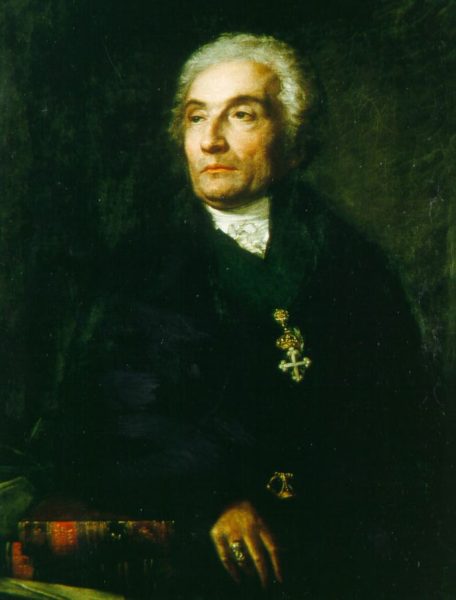
Joseph de Maistre, perhaps the most eloquent proponent of “throne and altar” ideology.
In effect, the idea of a Patriot King would serve as a Sorelian myth, inspiring WASPs to act in opposition to an irresponsible and corrupt plutocratic system demanding automatic obedience and mindless conformity. For the radical French syndicalist Georges Sorel (1847-1922), men cannot be galvanized into action through discourse or considered analysis. According to historian Irving Louis Horowitz, Sorel viewed action as “the outcome of an appeal to imagination and intuition, which dramatizes the consequences of an act rather than [offering] a reasoned prediction of those consequences.”
An ethnoreligious appeal to the idea of a Patriot King will nourish WASPs around the world “on the strength of kinship and community feeling; on the ability to act as a collective unit.” To act as a whole, as a united people, WASPs will need to focus on a single unifying element. As a Sorelian myth, the pragmatic value of the idea of a Patriot King will not depend on its “objectively primary content as such, but simply the quality of making men cohere in a common endeavour.”
Remember, though: a king is, indeed, like unto God; he cannot save those who will not save themselves. Those who pray for the miraculous appearance of a Patriot King must make themselves worthy of such a blessing. The resurrection of the Angelcynn church will be but the first step in the salvation of the WASPs. Much else will need to be done if virtuous WASPs are to create and secure “little republics” of their own on the fiercely-contested terrain of a transnational civil society.
Grégoire Canlorbe: You studied the “theological significance of the destruction of the Jerusalem temple in AD 70.” What would be the political, “theological significance” of the reconstruction of the Jerusalem temple—and of the reestablishment of the priestly caste attached to its service?
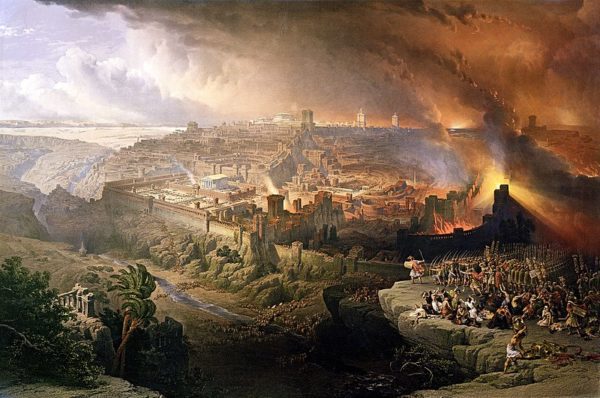
The Siege and Destruction of Jerusalem, by David Roberts (1850).
Drew Fraser: Mainstream Christianity rests upon some version of a futurist eschatology. That is to say, most Christians, Catholics and Protestants alike, believe that the Bible reveals the salvation history and destiny of humanity from the creation of planet earth in Genesis until the end of the world at the Second Coming of Jesus Christ. Belief in the prophesied end of the world takes several forms. Most Christians are “amillennialists” who take no firm position of when or how the Second Coming will take place. “Post-millennialists,” by contrast, believe that Christ will return only after the kingdom of God has established its dominion to the ends of the earth.
Christian Zionists (aka “dispensationalists”) believe that the reconstruction of the Jerusalem Temple will inaugurate the Millennial (thousand-year) reign of Jesus Christ here on earth in preparation for the Last Judgement. On this view, the establishment of the Israeli state in 1948 was in partial fulfillment of God’s promise of salvation to all Christians.
Not all Christians, however, accept the deeply-entrenched (though competing) ecclesiastical traditions grounded in a futurist eschatology. Preterists (from the Latin praeter meaning “past”) hold that the Bible story effectively comes to an end with the destruction of the Temple in AD 70. Their reading of the bible story suggests that those who look forward to the return of Jesus Christ at the end of the world are misinterpreting the Bible in accordance with presuppositions grounded in a false hermeneutic. Futurist eschatology, preterists say, is unbiblical.
Preterists hold to a covenantal eschatology grounded in a Hebrew hermeneutic according to which the Bible story has to do with the rise and fall of Old Covenant Israel. They insist that the clear text of Scripture shows that all of the biblical prophecies of a new heaven and a new earth, not just those in Revelations, were fulfilled in AD 70. In August of that year, Christ came (the Parousia or Second Coming) to oversee the destruction of the temple in Jerusalem, the physical center of the old heaven and old earth occupied by God’s first people. In Revelation, we see the Old Covenant world of Israel sinking into lakes of fire, while the New Covenant enters into history to create a new heaven and new earth. The Jerusalem Temple makes its exit in a spectacular cataclysm. The new creation becomes incarnate in the church, the ecclesiastical Body of Christ, which by AD 70 has been carried to the ends of the known world. There the bible story ends.
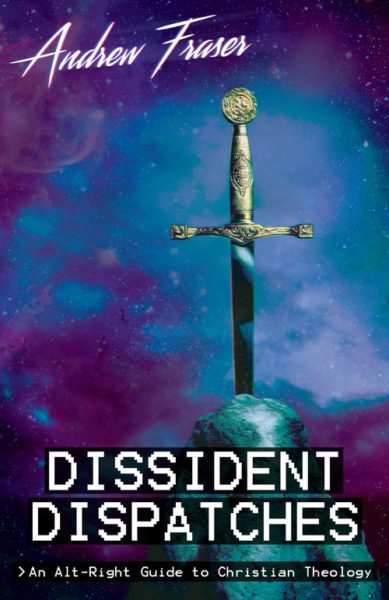 The Old Covenant bound the holy nation of Israel to God; the New Covenant extended the grace of God to every nation (ethnos) of the oikumene. The leaves of the tree of life in the New Jerusalem were to serve for “the healing of nations.” Old Israel was no more. On Judgement Day, Christ sentenced the stiff-necked synagogue of Satan to spiritual death. Only a righteous remnant was left to carry the holy seed of Israel unto the nations. For almost two thousand years, every Christian nation adjured Jews within their realm to recognize their Redeemer, thus ending their age-old rebellion against God. In sharp contrast to the Jews, Anglo-Saxons eagerly entered into the new covenant world.
The Old Covenant bound the holy nation of Israel to God; the New Covenant extended the grace of God to every nation (ethnos) of the oikumene. The leaves of the tree of life in the New Jerusalem were to serve for “the healing of nations.” Old Israel was no more. On Judgement Day, Christ sentenced the stiff-necked synagogue of Satan to spiritual death. Only a righteous remnant was left to carry the holy seed of Israel unto the nations. For almost two thousand years, every Christian nation adjured Jews within their realm to recognize their Redeemer, thus ending their age-old rebellion against God. In sharp contrast to the Jews, Anglo-Saxons eagerly entered into the new covenant world.A preterist biblical hermeneutic is clearly opposed to Christian Zionist dispensationalism. The reconstruction of the Jerusalem Temple by the modern Israeli state cannot be justified theologically within the framework of covenant eschatology. (It would, of course, signal a blasphemous desire to reverse the divine judgement on Old Covenant Israel.)
On a positive note, preterism provides a warrant for an Angelcynn ethnonational church aiming to raise up WASPs as a holy nation in their own right. Such a warrant was clearly exercised when the early Christian church recognized a biocultural affinity between the covenantal language of the Bible itself and the prominent place occupied by covenants in tribal social structures of Old England.
Conversely, once Anglo-Saxon churches downplayed the importance of blood covenants to the spiritual life of both family and nation, the ancestral attachment of Anglo-Saxon Protestants to the Body of Christ began to fade away. The civil religion of the modern Anglican church, focused as it is on personal salvation, refuses to recognize itself as the spiritual home of the large, partly-inbred extended family that constitutes the Anglo-Saxon ethny. No such bloodless faith will ever give birth to a holy nation in the eyes of God.
Contemporary WASPs drawing upon the wisdom enshrined in Holy Scripture will recognize that their own ethnonation, no less than ancient Israel, must ground itself in a divinely-ordained covenant between the dead, the living, and the unborn. The living members of a godly nation will see themselves as the trustees of the family blood, rights, property, name, and position for their lifetime. They have an inheritance from the past to be developed and preserved for the future. Along with its warrant for nationhood and a storehouse of wisdom for all ages, the biblical fate of Old Covenant Israel stands as a clear warning to any nation breaching its covenantal obligations to God and man.
Grégoire Canlorbe: Thank you for your time. Please, feel free to add anything else.
Drew Fraser: Thanks for the opportunity to do this. I found your questions quite stimulating.
Wednesday, July 21, 2021
How Slavery Started in America
SLAVERY IN NORTH AMERICA 1654-JUNE 19, 1865?
Four hundred years ago, in 1607, Jamestown, VA, the first permanent settlement by Europeans in North America was founded. In 1610, John Rolfe introduced a strain of tobacco which quickly became the colony’s economic foundation. By 1619, more labor was needed to support the tobacco trade and “indentured servants” were brought to the colony including about 20 Africans. As of 1650, there were about 300 "Africans" living in Virginia, about 1% of an estimated 30,000 population. They were still not slaves, and they joined approximately 4000 white indentured "servants" working out their loans for passage money to Virginia. They were granted 50 acres each when freed from their indentures, so they could raise their own tobacco.
Slavery was brought to North America in 1654, when Anthony Johnson, in Northampton County, convinced the court that he was entitled to the lifetime services of John Casor, a Black man. This was the first judicial approval of life servitude, except as punishment for a crime. Anthony Johnson was a Black man, one of the original 20 brought to Jamestown in 1619. By 1623, he had achieved his freedom and by 1651 was prosperous enough to import five "servants" of his own, for which he was granted 250 acres as "headrights".
 | |
Slave sale in Maryland. |
However, the Transatlantic slave trade from Africa to the Americas had been around for over a century already, originating around 1500, during the early period of European discovery of West Africa and the establishment of Atlantic colonies in the Caribbean and South and North America when growing sugar cane (and a few other crops) was found to be a lucrative enterprise. Slaves were usually captured by African tribes in raids or open warfare or purchased from other African tribes. Many tribes were happy to get rid of their enemies by capturing and selling them for trade goods--usually whiskey, swords, guns and gold. It is believed that about 11 million men, women and children were transported in ships across the Atlantic to various ports in the Americas, mostly to Brazil and the islands in the Caribbean from 1500 to 1850.
Thursday, July 15, 2021
The Horrible Fate of John Casor, The First Black Man to be Declared Slave for Life in America
The Horrible Fate of John Casor, The First Black Man to be Declared Slave for Life in America
https://www.smithsonianmag.com/smart-news/horrible-fate-john-casor-180962352/
Black people in early America weren’t slaves. After this lawsuit, they could be
Tabacco_Field.jpg
No images of Casor survive to the present day. Tobacco fields like this one, however, would have been what he saw daily. (Wikimedia Commons)
By Kat Eschner
SMITHSONIANMAG.COM
MARCH 8, 2017
20544647
The only date definitely connected to John Casor’s life is this day in 1654 or 1655. It’s not when he was born, when he achieved something or when he died. It’s when he became a slave.
Casor was originally an indentured servant, which meant he was practically a slave in some senses. But what was bought or sold wasn’t him, it was his contract of indenture, which obligated him to work for its holder for the period it set. At the end of that time, indentured servants—who could be of any race—were considered legally free and sent out into the world.
This might sound like a rough deal, but indenture was how the British colonizers who lived in what would later become the United States managed to populate the land and get enough people to do the back-breaking work of farming crops like tobacco in the South.
People who survived their period of indenture (many didn’t) went on to live free lives in the colonies, often after receiving some kind of small compensation like clothes, land or tools to help set them up, writes Ariana Kyl for Today I Found Out.
That was the incentive that caused many poor whites to indenture themselves and their families and move to the so-called New World. But Africans who were indentured were often captured and brought over against their will. That's what happened to the holder of Casor’s indenture, Anthony Johnson. Johnson served out his contract and went on to run his own tobacco farm and hold his own indentured servants, among them Casor. At this time, the colony of Virginia had very few black people in it: Johnson was one of the original 20.
After a disagreement about whether or not Casor's contract was lapsed, a court ruled in favor of Johnson and Casor saw the status of his indenture turn into slavery, where he—not his contract—was considered property. Casor claimed that he had served his indenture of “seaven or Eight years” and seven more years on top of that. The court sided with Johnson, who claimed that Casor was his slave for life.
So Casor became the first person to be arbitrarily declared a slave for life in the U.S. (An earlier case had ended with a man named John Punch being declared a slave for life as a punishment for trying to escape his indentured servitude. His fellow escapees, who were white, were not punished in this way.) Of course, as Wesleyan University notes, “the Transatlantic slave trade from Africa to the Americas had been around for over a century already, originating around 1500.” Slaves, usually captured and sold by other African tribes, were transported across the Atlantic to the Americas, the university’s blog notes. Around 11 million people were transported from 1500 to 1850, mostly to Brazil and the Caribbean islands. If they arrived in America, originally they became indentured servants; if they arrived elsewhere, they became slaves.
Casor’s story is particularly grim in hindsight. His slip into slavery would be followed by many, many other people of African descent who were declared property in what became the United States. It was a watershed moment in the history of institutional slavery.
“About seven years later, Virginia made this practice legal for everyone, in 1661, by making it state law for any free white, black or Indian to be able to own slaves, along with indentured servants,” Kyl writes. The step from there to a racialized idea of slavery wasn’t a huge one, she writes, and by the time Johnson died in 1670, his race was used to justify giving his plantation to a white man rather than Johnson’s children by his wife, Mary. He was “not a citizen of the colony,” a judge ruled, because he was black...
Wednesday, July 14, 2021
.Wives should submit to their husbands etc...
- Ephesians 5:22-24 ...wives should submit to their husbands etc.
- 1 Timothy 2:11-15 A woman should learn in quietness and full submission. I do not permit a woman to teach or to have authority over a man; she must be silent etc.
- 1 Corinthians 14:33-35 ...women should remain silent in the churches (and following).
- 1 Corinthians 11:3-16 Now I want you to realize that the head of every man is Christ, and the head of the woman is man (and following).
- Colossians 3:18 Wives, submit to your husbands, as is fitting in the Lord.
- Peter 3:1-6 Wives in the same way be submissive to your husbands (and following).
- Titus 2: 4-5 Then they can train the younger women to love their husbands and children, to be self controlled and pure, to be busy at home, to be kind, and to be subject to their husbands so that no one will malign the word of God.
Black Fragility (Def.) by Mark Dice
Discomfort and defensiveness on the part of some black people who live in a predominately White culture. Due to fixating on long gone past...
-
November 5, 2018 : Bomb Threat called in at building next to Trump event. November 5, 2018 : Sen. Joe Manchin (D-WV) tells cheering suppor...
-
1.) Black BLM racist Kevin Long mass murdered 3 officers while shooting 6 2.) Racist Black Israelite mass murderer Davis Anderson killed 5 ...
-
To be less white is: to be less oppressive, to be less arrogant, to be less trusting, to be less defensive, to be less ignorant, to be mor...